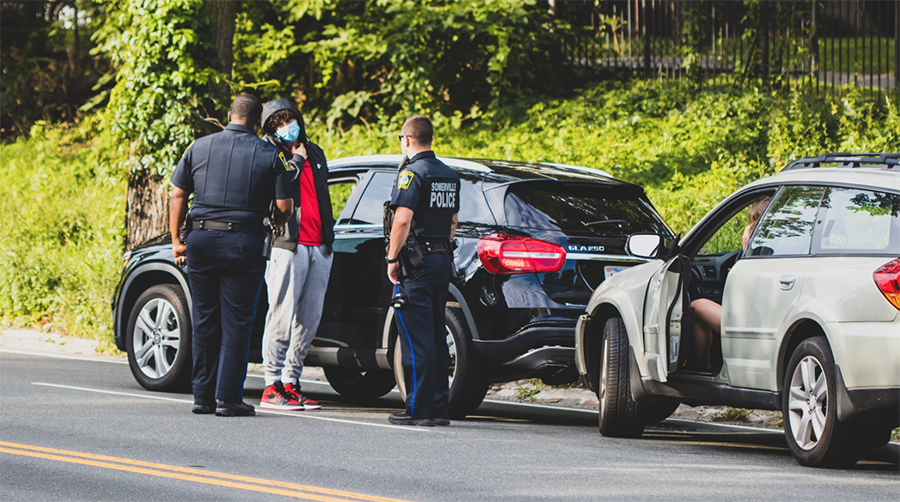
Before we dig into finding out “who’s at fault” after a wreck, let’s go over some myths you may have heard when sidewalk lawyers (those who got their “law degree” by watching CSI) try to determine liability in a car accident.
Myth: Every time you are hit from behind, it’s the other car’s fault: Not so fast. This may be true over half the time, but if it can be proven that your turn signals or brake lights were not working, or that you were driving erratically, you may be held partly responsible for the accident.
Myth: If a police report doesn’t expressly state the other driver was at fault, you can’t file an insurance claim against them: While police reports can be very helpful, it doesn’t always matter if the other driver was ticketed or not. This is why you always need to hire an experienced auto accident attorney.
Myth: If the accident was your fault, you can’t file for compensation: Not entirely true. You may still be able to file a claim even if you were at fault, and you may be able to recover partial compensation if you were partially at fault. Certain insurance benefits, such as Personal Injury Protection (PIP), may let you file no matter who was deemed responsible for the accident.
Myth: You are always at fault if you hit a pedestrian: This is not always true. Pedestrians who are jay-walking, walking down the centerline, crossing against the light, or darting out from between parked cars do not have the legal “right of way.” Pedestrians in a crosswalk, however, do; even then, depending on the circumstances, you may not be held liable.
Myth: Drivers do not need to call police, exchange information, or notify their insurance if the accident was minor: The truth is that the person you just waved away may come back and file a claim later, claiming significant injuries and damages. In fact, you may be injured yourself and not realize it until hours after the accident. You don’t necessarily need to call the police after a minor accident, but you should always notify the insurance company, get the other driver’s insurance information, find a witness or two, and snap a few pictures of both cars before leaving the scene.
Read on to see how law enforcement and insurance companies determine liability in a car accident.
Pointing Fingers: Determining Liability After a Car Accident
There are certain criteria that both law enforcement and insurance companies look for to determine who’s at fault after an accident. These will all loosely fall under one of four categories:
- Negligence
- Strict liability
- Intentional Misconduct
- Recklessness conduct
1. Negligence
Anything that causes you to react (or not react) as expected while driving can be considered neglecting your driver duties. This includes:
- Distractions such as texting or other cell phone use
- Anything that keeps you from scanning the road and paying attention to other drivers
- Driving your vehicle with faulty blinkers, tail lights, brake lights, or headlights
If it’s decided that you neglected your obligations behind the wheel, you will be found at fault.
Friendly Crum Tip: Put the phone down and keep your eyes on the road. Make sure you are driving in a safe, focused way every time you get behind the wheel.
2. Strict Liability
This is generally found in accidents involving things such as malfunctioning lights, missing or fallen stop signs, and other drivers whose actions may have caused your collision, whether they were involved or not.
3. Intentional Misconduct
Did that impact make you drop your beer? Driving under the influence of alcohol or drugs is a type of intentional misconduct, and may adversely affect a decision regarding liability after an accident, even if it wasn’t technically “your” fault.
Friendly Crum Tip: You will not be exonerated from driving while impaired, even if an accident is proven to be the other driver’s fault.
4. Reckless Conduct
This is a blanket term for willful misbehavior behind the wheel such as aggressive driving, speeding, running red lights and stop signs, and other dangerous behaviors.
Friendly Crum Tip: Aggressive driving in Maryland is a punishable offense on its own; it will not be overlooked if it contributed to an accident.
Let a Professional Handle the Insurance Companies
You can see how quickly a “simple” car accident can get out of hand, and how you may be deemed responsible even if, technically, you weren’t. Make sure you have a knowledgeable personal injury attorney on your side to handle everything, from representing you in court to dealing with your insurance company. Got a question about an accident? Contact us now for a free, no risk, no-obligation consultation.

